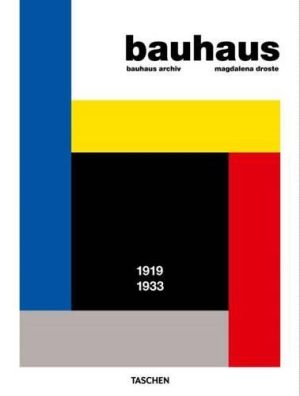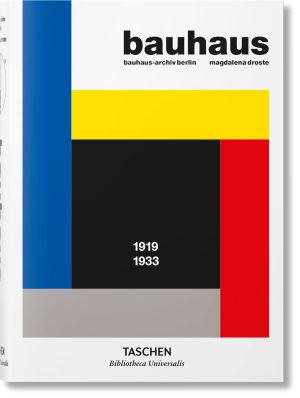di Sandra Rendgen
a cura di Julius Wiedemann
Seeing is understanding
How complex ideas can be communicated via graphics
“If you can’t explain it simply, you don’t understand it well enough.” — Albert Einstein
Our everyday lives are filled with a massive flow of information that we must interpret in order to understand the world we live in. Considering this complex variety of data floating around us, sometimes the best — or even only — way to communicate is visually. This unique book presents a fascinating perspective on the subject, highlighting the work of the masters of the profession who have created a number of breakthroughs that have changed the way we communicate. Information Graphics has been conceived and designed not just for graphics professionals, butfor anyone interested in the history and practice of communicating visually.
The in-depth introductory section, illustrated with over 60 images (each accompanied by an explanatory caption), features essays by Sandra Rendgen,Paolo Ciuccarelli, Richard Saul Wurman, and Simon Rogers; looking back all the way to primitive cave paintings as a means of communication, this introductory section gives readers an excellent overview of the subject. The second part of the book is entirely dedicated to contemporary works by today’s most renowned professionals, presenting 200 graphics projects, with over 400 examples — each with a fact sheet and an explanation of methods and objectives — divided into chapters by the subjects Location, Time, Category, and Hierarchy.
- 200 projects and over 400 examples of contemporary information graphics from all over the world—ranging from journalism to art, government, education, business and much more
- Four essays about the development of information graphics since its beginnings
- Exclusive poster (673 x 475 mm / 26.5 x 18.7 in) by Nigel Holmes, who during his 20 years as graphics director for TIME revolutionized the way the magazine used information graphics
> Sandra Rendgen is an art historian who has worked for both print and interactive media. After completing her studies in Amsterdam and Berlin, she contributed as a picture editor to German magazines and newspapers, such as Vanity Fair, Die Welt am Sonntag, and to TASCHEN’s Interiors Now! As an editor, she develops interactive media installations for various museums and institutions.
Julius Wiedemann was born in Brazil, studied graphic design and marketing, and was an art editor for digital and design magazines in Tokyo. His many TASCHEN digital and media titles include Illustration Now!, Advertising Now, Logo Design, and Brand Identity Now!
Veste editoriale: Cartonato
Formato: 24,6×37,2
Pagine: 480
Lingua: GB-F-D
Anno: 2012
ISBN: 9783836528795
Potrebbero interessarti anche:
di Sandra Rendgen
a cura di Julius Wiedemann
Seeing is understanding
How complex ideas can be communicated via graphics
“If you can’t explain it simply, you don’t understand it well enough.” — Albert Einstein
Our everyday lives are filled with a massive flow of information that we must interpret in order to understand the world we live in. Considering this complex variety of data floating around us, sometimes the best — or even only — way to communicate is visually. This unique book presents a fascinating perspective on the subject, highlighting the work of the masters of the profession who have created a number of breakthroughs that have changed the way we communicate. Information Graphics has been conceived and designed not just for graphics professionals, butfor anyone interested in the history and practice of communicating visually.
The in-depth introductory section, illustrated with over 60 images (each accompanied by an explanatory caption), features essays by Sandra Rendgen,Paolo Ciuccarelli, Richard Saul Wurman, and Simon Rogers; looking back all the way to primitive cave paintings as a means of communication, this introductory section gives readers an excellent overview of the subject. The second part of the book is entirely dedicated to contemporary works by today’s most renowned professionals, presenting 200 graphics projects, with over 400 examples — each with a fact sheet and an explanation of methods and objectives — divided into chapters by the subjects Location, Time, Category, and Hierarchy.
- 200 projects and over 400 examples of contemporary information graphics from all over the world—ranging from journalism to art, government, education, business and much more
- Four essays about the development of information graphics since its beginnings
- Exclusive poster (673 x 475 mm / 26.5 x 18.7 in) by Nigel Holmes, who during his 20 years as graphics director for TIME revolutionized the way the magazine used information graphics
> Sandra Rendgen is an art historian who has worked for both print and interactive media. After completing her studies in Amsterdam and Berlin, she contributed as a picture editor to German magazines and newspapers, such as Vanity Fair, Die Welt am Sonntag, and to TASCHEN’s Interiors Now! As an editor, she develops interactive media installations for various museums and institutions.
Julius Wiedemann was born in Brazil, studied graphic design and marketing, and was an art editor for digital and design magazines in Tokyo. His many TASCHEN digital and media titles include Illustration Now!, Advertising Now, Logo Design, and Brand Identity Now!
Veste editoriale: Cartonato
Formato: 24,6×37,2
Pagine: 480
Lingua: GB-F-D
Anno: 2012
ISBN: 9783836528795
Potrebbero interessarti anche:
Prodotti correlati
-
BAUHAUS-BU (Updated Edition)
30,00 € Aggiungi al carrello -
BAUHAUS WEIMAR
105,00 € Aggiungi al carrello -
In Offerta
ART DÉCO
39,00 €Il prezzo originale era: 39,00 €.35,00 €Il prezzo attuale è: 35,00 €. Aggiungi al carrello -
In Offerta
A DICTIONARY OF COLOR COMBINATIONS Vol.2
32,00 €Il prezzo originale era: 32,00 €.29,00 €Il prezzo attuale è: 29,00 €. Aggiungi al carrello
FAQ
Leggi le domande frequenti per avere maggiori informazioni sui metodi di pagamento, la spedizione e molto altro
Per acquistare uno o più libri è sufficiente compilare l’apposito modulo al quale si accede dalla scheda di ciascun libro.
Qualora i volumi ordinati non siano tutti immediatamente disponibili, il nostro staff si riserva di contattarti via mail per concordare le modalità di spedizione (A: invio immediato dei volumi presenti a magazzino e successivo invio di quelli mancanti – B. invio unico dopo il ricevimento da parte nostra dei volumi mancanti).
N.B. la fattura deve essere esplicitamente richiesta al momento dell’ordine, comunicando la ragione sociale completa di partita IVA e/o Codice Fiscale e Codice SDI.
Ai sensi dell’Art.5 del relativo Decreto, l’acquirente ha il diritto di recedere dal contratto e restituire i volumi ordinati entro 10 giorni lavorativi, purchè nel medesimo stato in cui li ha ricevuti. Il diritto di recesso dovrà essere esercitato mediante invio di lettera raccomandata A.R. a: LIMOND S.a.s. – via Arnolfo di Cambio 24/A – 37138 Verona (VR) – entro il termine di 10 (dieci) giorni lavorativi dal ricevimento dei volumi.
Tutti i resi dovranno essere autorizzati da Limond S.a.s (tel. +393472455641) con l’assegnazione di un numero di autorizzazione alla resa. Le spese di spedizione saranno interamente a carico del cliente e non si accetteranno pacchi in contrassegno.
Al ricevimento dei volumi, e verificata la loro integrità, Limond S.a.s. provvederà, entro 10 (dieci) giorni, ad accreditare il cliente del valore dei volumi restituiti.
La tempestività nell’evasione dell’ordine è determinata dalla disponibilità della merce ordinata. In caso di immediata disponibilità l’ordine verrà evaso entro 2 giorni lavorativi. Qualora uno o più libri non dovessero essere presenti a magazzino possono essere ordinati su richiesta; il nostro staff informerà il cliente, via mail, circa i tempi necessari per l’evasione dell’ordine.
Pagamento tramite bonifico bancario anticipato alle coordinate comunicate in fase di check-out
I costi di invio (che comprendono imballo e spedizione) per libri e riviste in ITALIA sono i seguenti:
Servizio postale: 3-5 gg (per merce immediatamente disponibile presso il nostro magazzino)
- Spedizioni per acquisti fino a 62,00€: €5,50
- Spedizioni per acquisti fino a 120,00€: €9,50
- Spedizioni per acquisti superiori a 120,00€: Gratuite
Per una quotazione dei costi di invio in EUROPA o per spedizioni internazionali vengono richiesti i seguenti dati:
- Nome/Cognome
- Indirizzo (comprensivo di Codice postale)
- Telefono (meglio se Cellulare)
Alla conferma di accettazione, verranno comunicate coordinate bancarie/account PayPal da utilizzare per il pagamento. Un Una volta ricevuto, verrà evasa la spedizione inoltrando notifica e tracciabiltà.









